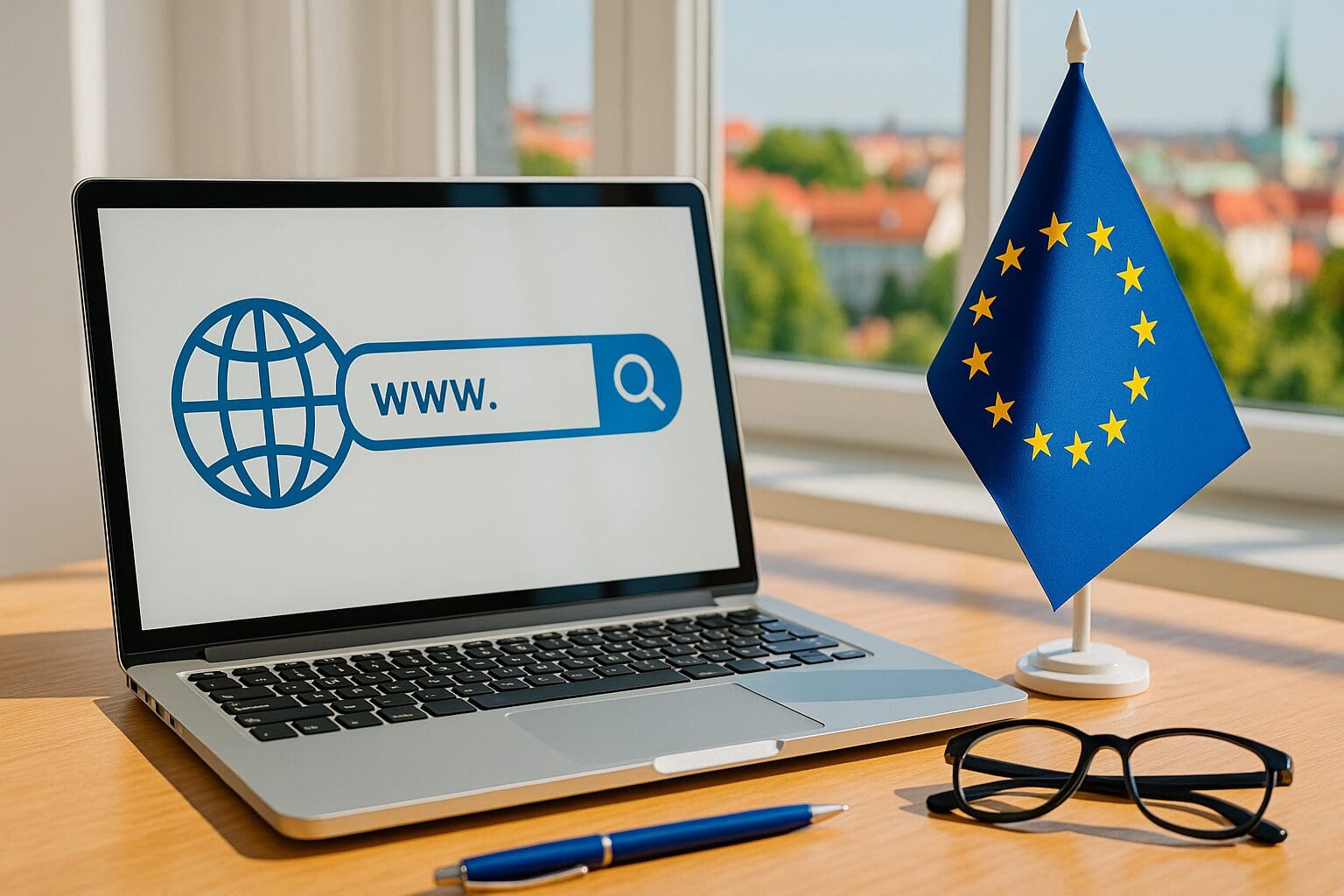
How to choose the perfect domain name
Introduction
Choosing the right domain name is a crucial step for anyone starting a business, launching a blog, or building an online presence—especially in Europe, where linguistic diversity, local trust, and regional regulations play a key role. A good domain name builds credibility, boosts SEO, and makes your brand easier to recognize and remember.
This guide will help you select, register, and protect the ideal domain name, with insights tailored for European users but useful for anyone worldwide.
1. The importance of a domain name
In Europe, where trust in local extensions is high, your domain name is more than a URL—it’s part of your brand identity.
It should be:
- Short and easy to remember
- Relevant to your name, product, or purpose
- Simple to type, without special characters, numbers, or accents
- Language-friendly across different European languages (e.g., avoid terms that are hard to pronounce in major EU markets)
2. Smart tips for choosing a domain name
a. Prioritize clarity and simplicity
Names like “ricettaitaliana.it” or “eurotechsolutions.com” are both clear and informative. Shorter domains reduce errors and boost memorability.
b. Avoid numbers, accents, and hyphens
While accents (è, ò) are used in many European languages, they are generally discouraged in domain names. Stick to simple characters for international compatibility.
c. Choose the right TLD for your audience
- .it – ideal for Italian businesses and institutions
- .de, .fr, .es – perfect for country-specific markets
- .eu – suitable for European-wide projects and organizations
- .com – universal and great for international reach
- .shop, .tech, .design – great for niche branding, but use with caution
Always check whether the extension is familiar and trusted in your target country.
d. Check domain availability
Use tools like WHOIS or registrar search platforms to check if your name is free. If it’s taken, try slight variations or different TLDs.
e. Secure similar variations
Protect your brand by also registering:
- Common misspellings
- Singular/plural forms
- Other language versions (e.g., .it and .com)
- Social media handles, where possible
3. Legal checks and brand protection
a. Avoid trademark infringement
Before registering your domain, check local and EU trademark databases (e.g., EUIPO) to avoid potential legal issues.
b. Register your own trademark
If your domain represents your brand, register the name as a trademark in Italy or the EU. It’s a small cost for long-term protection.
c. Use privacy protection
Use WHOIS privacy services (available with most registrars) to protect your contact details from public exposure.
4. Registering and managing your domain
a. Choose a trusted European-friendly registrar
Look for providers that offer:
- Multilingual support
- Transparent pricing
- Data protection (GDPR compliance)
- Add-ons like email, hosting, SSL certificates
Popular registrars in Europe include: IONOS, OVHcloud, Aruba.it, and STRATO.
b. Configure your DNS properly
Ensure key records (A, MX, CNAME) are set up correctly to enable website access and email functions.
c. Set auto-renewal or monitor expiry dates
Domains expire annually. Missing renewal can lead to lost access. Use reminders or activate auto-renewal.
5. SEO and domain names: What really matters
While domain names aren’t as SEO-critical as they used to be, using relevant keywords (e.g., “ristorante-milano.it”) can still help in local search results.
However, don’t sacrifice branding for SEO. A strong, recognizable name always wins in the long run.
6. Mistakes to avoid
- Using generic or overly complex names
- Copying names that resemble famous brands
- Registering domain names impulsively
- Failing to secure important variations
- Choosing unreliable registrars based on low prices alone
7. Long-term domain strategy
If you plan to expand, register domains for different countries or languages now. For example, a Milan-based startup might also want .com, .eu, and .fr to future-proof their growth.
Also, if you have multiple domains, manage them with tools or dashboards offered by your registrar.
Final thoughts
A domain name is a long-term investment in your brand, credibility, and online success. For businesses in Italy and across Europe, choosing the right name and extension can make all the difference in trust and visibility. Plan carefully, register smartly, and protect what’s yours—because the perfect domain is more than a name; it’s your identity online.

![Vultr_logo_high_res[1] Vultr_logo_high_res[1]](https://b3400949.smushcdn.com/3400949/wp-content/uploads/elementor/thumbs/Vultr_logo_high_res1-qy0twclne9rg9ku0ilspwh1zqace3ki9i98m9n6680.png?lossy=2&strip=1&webp=1)

